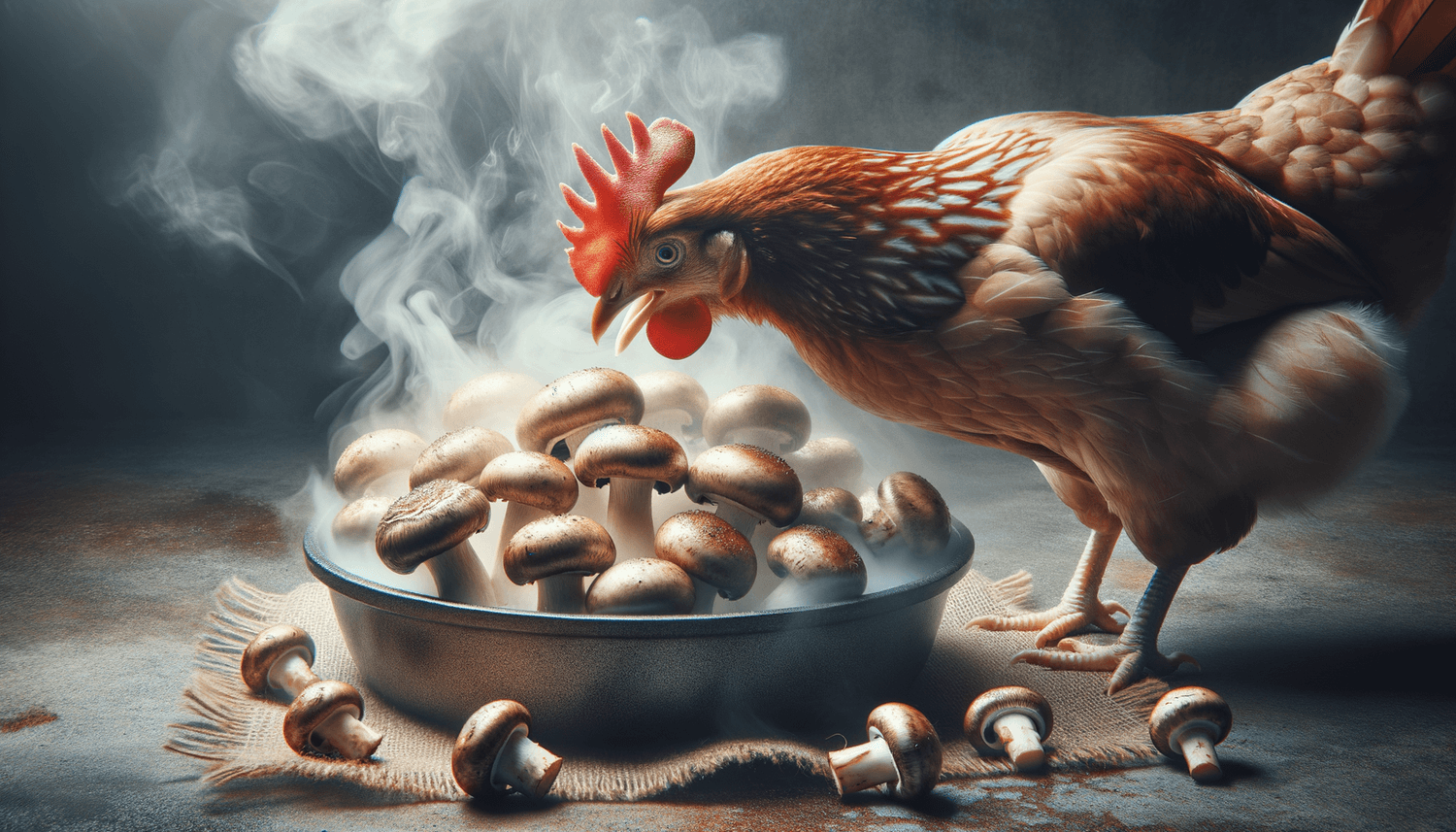Yes, chickens can eat cooked mushrooms. Chickens can safely consume mushrooms that are considered edible for humans. However, it’s important to ensure that the mushrooms given to chickens are non-toxic and free from any spices or additives that could be harmful to them.
Quick Summary
- Chickens can eat cooked mushrooms.
- Only non-toxic varieties safe for human consumption should be given.
- Mushrooms can provide chickens with additional nutrients but should be fed in moderation.
- It’s recommended to feed cooked mushrooms in small amounts as an occasional treat.
Overview of Cooked Mushrooms
Cooked mushrooms are a culinary ingredient derived from edible fungi. They are known for their texture and umami flavor, enriching various dishes. Nutritionally, mushrooms contain a mix of vitamins such as B vitamins, minerals like selenium, and dietary fiber, but they are low in calories, making them a healthy addition to a diet in moderation.
Benefits and Risks of Cooked Mushrooms for Chickens
Offering cooked mushrooms to chickens can be beneficial as they provide a source of vitamins and minerals. However, there is also a risk if chickens are fed wild mushrooms or those that are potentially toxic to them. Any mushrooms with added ingredients like garlic, onions, or heavy spices should also be avoided, as these can be harmful to chickens.
Feeding Guidelines
Feed chickens mushrooms that have been thoroughly cooked and are plain, without seasonings or sauces. It’s best to introduce mushrooms in small amounts to see how the chickens react and to ensure there are no adverse effects. As mushrooms are not a natural part of a chicken’s diet, they should be given as a treat and should not replace their balanced feed.
Alternatives
If there are concerns about the safety of feeding mushrooms or if your chickens do not like them, healthier alternatives include vegetables such as cooked carrots, broccoli, and spinach. These are nutrient-rich and generally safe when fed in moderation as part of a diverse diet.
Expert Opinions
Poultry nutritionists generally agree that while cooked mushrooms can be a nutritious treat, they are not necessary for a chicken’s diet and should not be overfed. The experts advise focusing on a complete feed tailored for poultry to ensure they’re receiving all necessary nutrients for optimal health.
Frequently Asked Questions
After learning about the potential of cooked mushrooms as a treat for chickens, some readers may have additional questions. The following are common questions that might arise:
How often can I feed my chickens cooked mushrooms?
It is safe to feed chickens cooked mushrooms occasionally, perhaps once a week or so as a treat, alongside their regular, balanced diet.
Are there any toxic mushrooms I should watch out for?
Yes, certain mushrooms are toxic and should never be fed to chickens. Avoid any wild mushrooms unless you are absolutely certain they are safe, and it’s best to stick with varieties that are commonly consumed by humans.
Can chickens eat raw mushrooms?
It is not recommended to feed chickens raw mushrooms due to potential toxins and digestibility issues. Always cook mushrooms before offering them to your chickens.

















